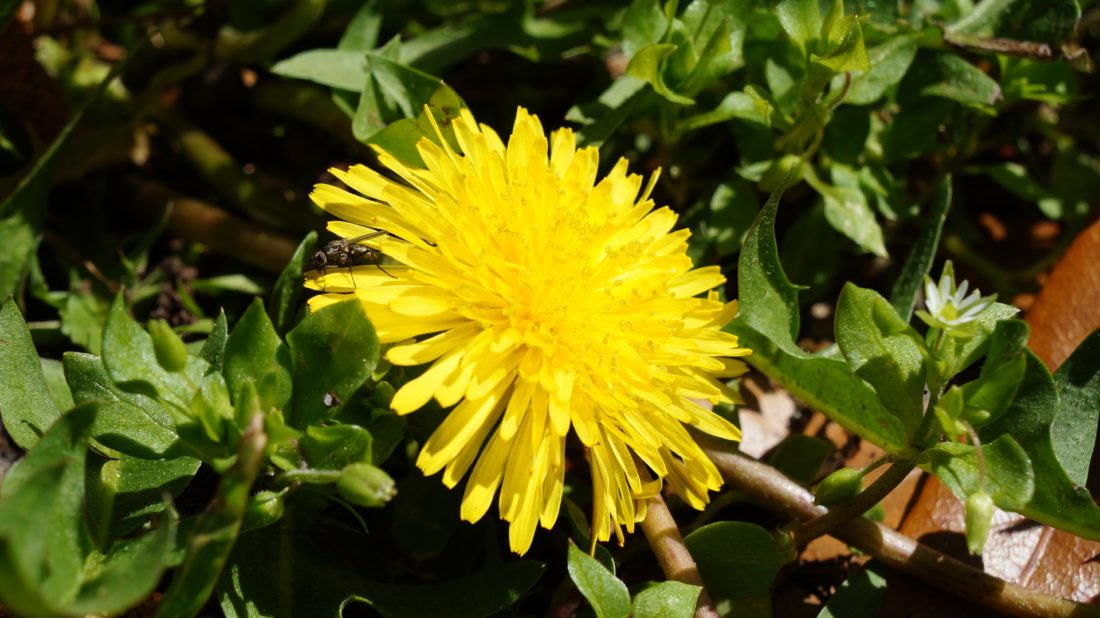How to Protect Your Garden From Pests
 Gardening can be a peaceful and stress-relieving way to beautify your home—and possibly grow crops you can use for cooking at the same time. However, even if you tend to your garden perfectly, there’s a chance you may be forced to deal with some uninvited guests: pests that eat or otherwise damage your plants, possibly beyond repair.
Gardening can be a peaceful and stress-relieving way to beautify your home—and possibly grow crops you can use for cooking at the same time. However, even if you tend to your garden perfectly, there’s a chance you may be forced to deal with some uninvited guests: pests that eat or otherwise damage your plants, possibly beyond repair.
Fortunately, there are some basic strategies that can keep your garden protected from these nasty invaders.
Understanding Differences in Insects
First, understand that not all bugs and insects are harmful. In fact, many are helpful for your garden. For example, most plants need bees for cross-pollination purposes. Ladybugs help control aphid populations, ultimately keeping your plants safer. Praying mantises, hoverflies, lacewings, and dragonflies are similarly beneficial.
Common culprits of garden damage include slugs, Japanese beetles, cabbageworms, and squash bugs. Learn to identify these species and you may be able to weed them out by hand; they tend to be big enough to easily spot.
Keep Your Garden Clean
One of the best steps you can take (and one of the simplest) is keeping your garden clean. Most insects and other pests are attracted to areas with dense vegetation, or even dead and dying plants. Some gardeners leave fallen fruit on the ground and allow dead leaves to accumulate; while these won’t directly harm your plant, they do provide more resources and hiding places to pests that can harm it. Try to get rid of these before they accumulate too much.
Also, if you have a plant that’s currently infested with a specific pest, throw that plant away. Don’t simply add it to your compost pile, and don’t allow it to remain in the garden. Otherwise, the infestation could spread to your other plants.
Apply Bug Spray
Most gardeners think about using a yard bug spray or similar product to protect their garden at the first sight of a problematic insect. The right yard spray will kill or deter the vast majority of problematic insects, while keeping things safe for you, your pets, and the environment.
Be sure to read ingredient labels here. Many pest control products rely on synthetic or harsh chemicals, taking an aggressive approach to pest management. However, some natural ingredients like thyme oil and rosemary oil can do a similarly good job.
Put Up Fencing
Fencing isn’t going to help you ward off tiny threats, like beetles or aphids, but it is extremely effective against larger pests, like rabbits, deer, or other herbivores. Your fence doesn’t need to be ridiculously tall or hard to break; as long as it remains in place and shields your garden almost completely, it should be fine. Herbivores are somewhat lazy; if they encounter any difficulty in reaching your crops, they’ll likely move on and try to find a different source.
If you don’t want to put up a full fence around your garden, you could invest in individual covers for your plants known as cloches. These tend to be especially helpful for seedlings, smaller plants, and specific plants that have trouble with pests.
Keep Your Plants Adequately Spaced
If a pest gets to one of your plants, it will probably get to all of your plants. You can combat against this possibility by keeping your plants adequately spaced. If you keep a few feet between your various plant species, provided you have the room, you can eliminate an infested plant before it spreads its harmful insects to your other crops.
Apply Repellants
There are many types of repellants and deterrents you can use to make your garden less interesting and/or less inviting to different types of pests. For example, you may be able to apply natural products like peppermint oil to deter certain types of insects, or you may be able to use an electronic gadget to send vibrations or soundwaves underground to deter burrowing mammals from getting near. If you have a large garden and open space, you may consider installing a scarecrow or something similar to deter birds from getting to your crops. Having an outdoor dog or cat may also be enough to prevent opportunistic animals from coming near.
No matter what, you’ll likely have to deal with a stray pest or two in your garden. However, with these strategies, you should be able to significantly minimize your risk. A garden without pests is a healthy garden, and one that’s much more likely to sustain the crop output and beauty that you desire. As you gain more experience gardening, you’ll learn which pests seem to be the most common in your area, and you’ll be able to experiment with different strategies to control those pests; eventually, you’ll find the perfect formula, and you can apply it every year.









